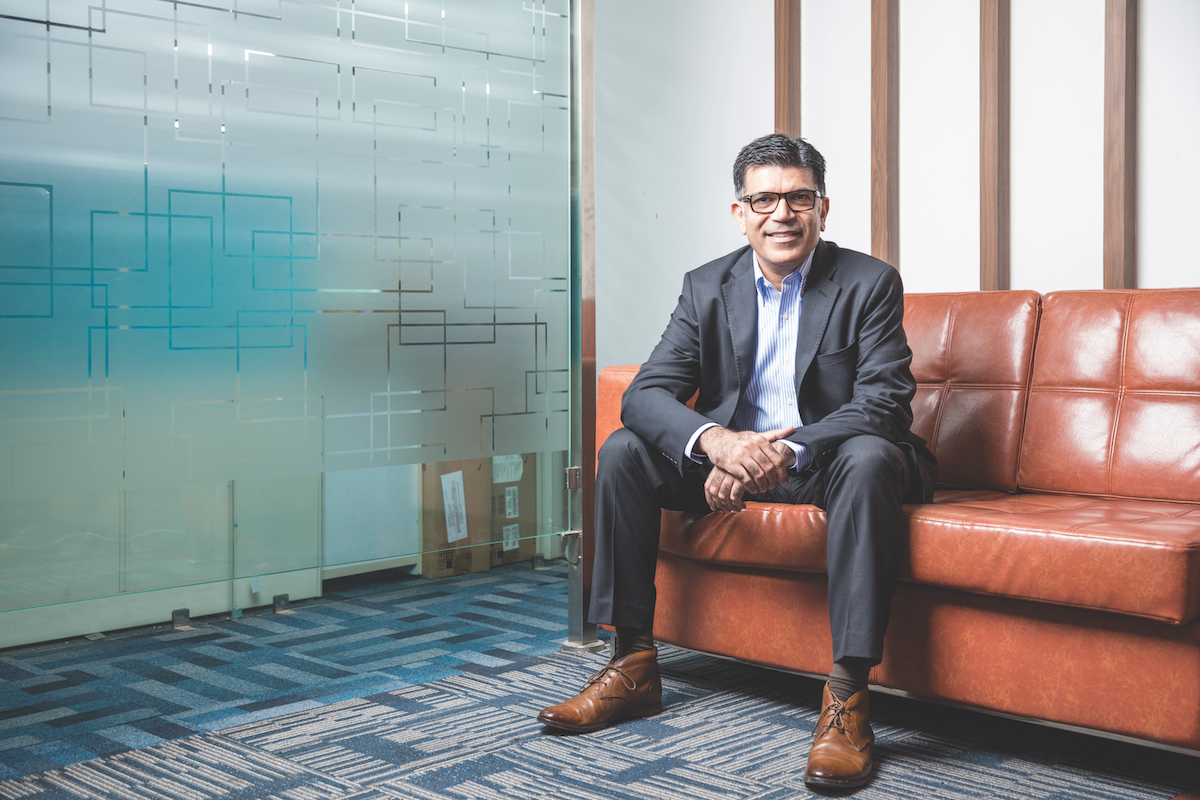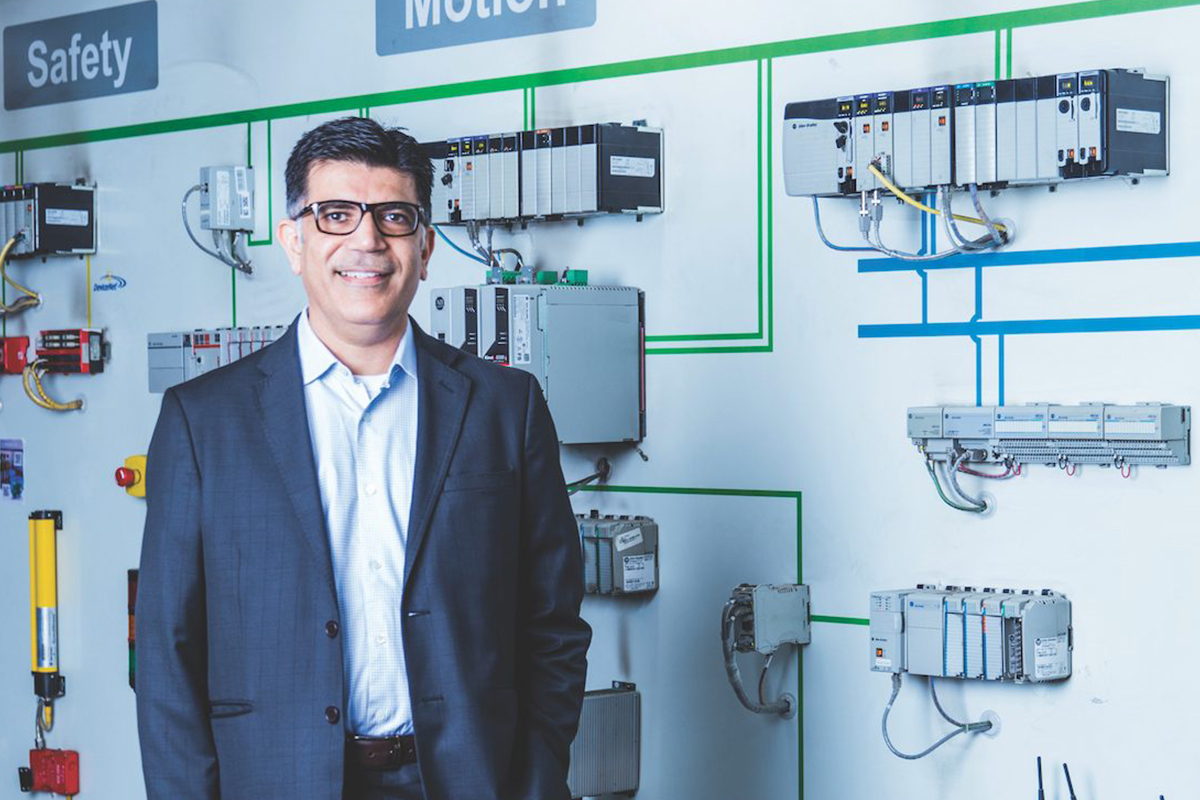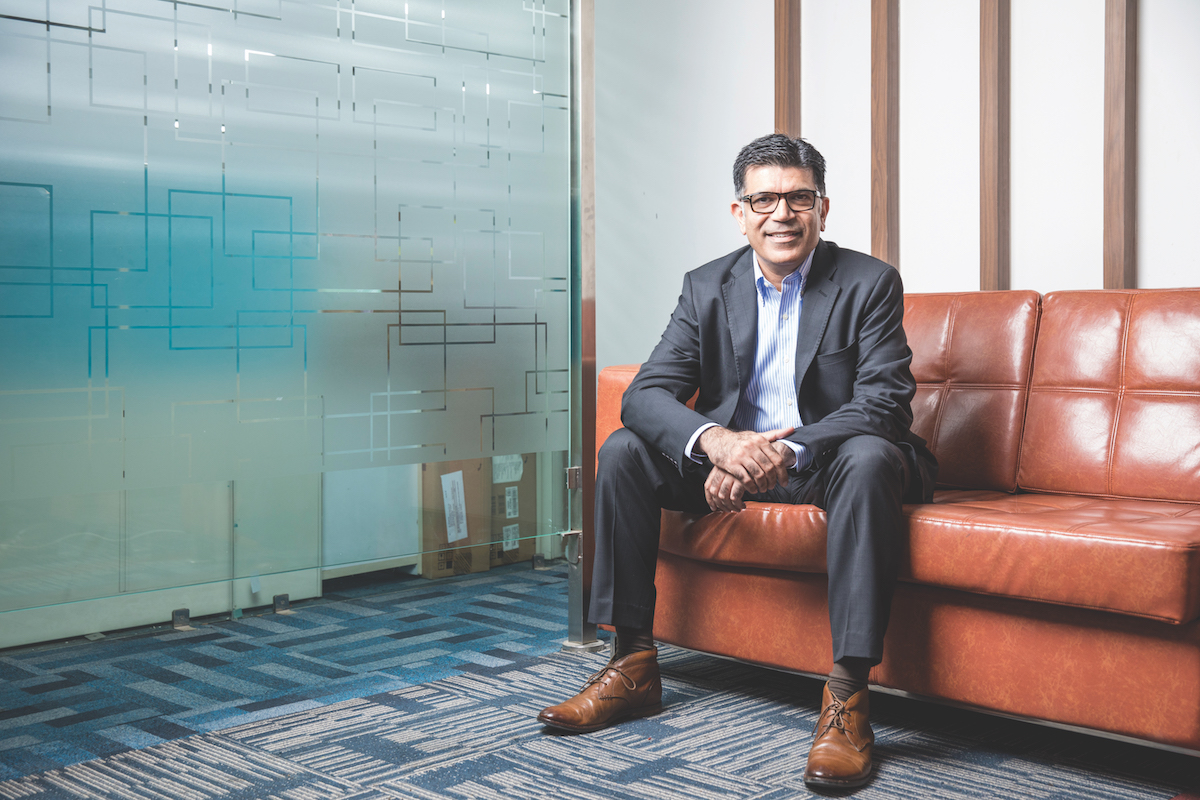Rockwell Automation India’s Managing Director Dilip Sawhney knows how important the role of manufacturing will have in India’s continuing development. He is cognisant, too, of the equally important part Rockwell Automation, a specialist in industrial automation, can play in contributing to the continued strength of India’s manufacturing sector.
“If India wants to achieve what it wants to at a high level – at a societal level – it needs to continue to create jobs,” Dilip tells The CEO Magazine. “Jobs cannot be created if manufacturing is not playing a contributory role in the course of the economy. Manufacturing in India must make itself modern and globally competitive. For that to happen, for Indian municipalities to be globally competitive, they need something like Rockwell.”

Rockwell Automation has had a presence in India for more than 30 years, but its history stretches far further back to 1903 when, in Milwaukee, Wisconsin, Lynde Bradley and Stanton Allen founded the Compression Rheostat Company. In the wake of a series of acquisitions, demergers and name changes, the company took on its current name of Rockwell Automation in 2001.
What hasn’t changed is the company’s commitment to offering customers the means to enable them to increase their competitive advantage. These days, the convergence of control systems and information and communications technologies has resulted in an expansion of the opportunities afforded by integrated automation. “The manner in which contemporary technologies are beginning to blend with those things manufacturers have always used to open up exciting new possibilities provides a great opportunity,” Dilip notes, “and it’s a space that Rockwell is comfortable operating in.”
Dilip has been with the company for 10 years. When he first entered into negotiations with the company, it was “getting ready to switch gears. In India, they wanted to accelerate the growth of the business, and they had some ideas that sounded very appealing to me”. Having cut his teeth on different companies within the industrial automation industry, Dilip’s passion had already crystallised. The opportunity to move to Rockwell “was a no-brainer, and a compelling chance to be at the nerve centre of the change that our top leadership wanted to bring about in the major global growth market that is India”.
Rockwell staff across the company’s global locations are working towards a common goal. “Our mission in life is to enable our customers and partners to attain operational excellence,” Dilip explains. “This comes down to creating a platform,
a stack of technologies that they could leverage to attain their operational excellence objectives. How do you partner with them, bringing in your domain expertise to help them along in that journey?” The answer to this question takes shape daily at Rockwell, and Dilip has gone so far as to create positions for ‘domain experts’, who work directly with customers to help them achieve these objectives.
“Our mission in life is to enable our customers and partners to attain operational excellence.”
To get to the endpoint of customer satisfaction, Rockwell relies upon the contributions of supply partners, and Dilip reveals that “the journey of the past five to seven years has been about discovering how to help build an ecosystem of partners that will enable us to then deliver value and solutions to our customers”. Focus currently rests on maturing
the kind of ecosystem that can deliver these results, and as part of its efforts in this sphere, Dilip says, “we’ve brought in two of the world’s largest global electrical distributors – organisations that are several times larger than Rockwell.
“We enabled them to enter India; we needed their support, and now they’ve set up a local presence in the region.” One of these companies is the market leaderSonepar. With global sales in excess of US$24 billion, the company has a presence in 44 countries, and is evidently a valuable ally for Rockwell.

Dilip is keenly aware of the necessity of keeping relationships with suppliers like Sonepar running smoothly. “I cannot maintain credibility with my customers if I do not have solid supplier relationships,” he says. The company maintains a strategic focus on these relationships to the extent that they have established a business leadership council dedicated to supplier success. “You’ve got to know what’s going on in their world, but equally to know what associated challenges could arise at our end in the next three months, the next year, and so on.”
Because India is not a large producer of electronics, many of Rockwell’s suppliers that have a base in the country fall under a different category. Dilip is directly involved in nurturing the relationships with some of these suppliers, and knows their value, both in a historical sense, and going forward. “We recognise the challenges involved in these relationships, and seek to be candid and honest,” he says. “We’ve been around for decades and, looking to the next decade and beyond, we must avoid taking a short-sighted perspective.”
“We’ve been around for decades and, looking to the next decade and beyond, we must avoid taking a short-sighted perspective.”
Dilip is prepared to capitalise on the opportunities that will arise from the Indian manufacturing industry entering a period of flux. “The amount of change we will see in the industry in the next five to 10 years will probably be more than has been witnessed in the past 50 years,” he says. “And industrial automation has a big role to play in that.”
“It’s not about us, it’s about what India needs.”
The possibilities on offer thrill the team on the ground in India, as well as the larger Rockwell organisation, “which continues to invest in India. This is what fires up our passion and our imagination. It’s not about us, it’s about what India needs and what we can do to help.”



